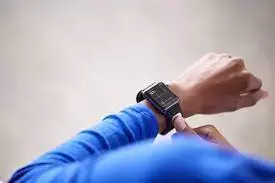- Home
- Medical news & Guidelines
- Anesthesiology
- Cardiology and CTVS
- Critical Care
- Dentistry
- Dermatology
- Diabetes and Endocrinology
- ENT
- Gastroenterology
- Medicine
- Nephrology
- Neurology
- Obstretics-Gynaecology
- Oncology
- Ophthalmology
- Orthopaedics
- Pediatrics-Neonatology
- Psychiatry
- Pulmonology
- Radiology
- Surgery
- Urology
- Laboratory Medicine
- Diet
- Nursing
- Paramedical
- Physiotherapy
- Health news
- Fact Check
- Bone Health Fact Check
- Brain Health Fact Check
- Cancer Related Fact Check
- Child Care Fact Check
- Dental and oral health fact check
- Diabetes and metabolic health fact check
- Diet and Nutrition Fact Check
- Eye and ENT Care Fact Check
- Fitness fact check
- Gut health fact check
- Heart health fact check
- Kidney health fact check
- Medical education fact check
- Men's health fact check
- Respiratory fact check
- Skin and hair care fact check
- Vaccine and Immunization fact check
- Women's health fact check
- AYUSH
- State News
- Andaman and Nicobar Islands
- Andhra Pradesh
- Arunachal Pradesh
- Assam
- Bihar
- Chandigarh
- Chattisgarh
- Dadra and Nagar Haveli
- Daman and Diu
- Delhi
- Goa
- Gujarat
- Haryana
- Himachal Pradesh
- Jammu & Kashmir
- Jharkhand
- Karnataka
- Kerala
- Ladakh
- Lakshadweep
- Madhya Pradesh
- Maharashtra
- Manipur
- Meghalaya
- Mizoram
- Nagaland
- Odisha
- Puducherry
- Punjab
- Rajasthan
- Sikkim
- Tamil Nadu
- Telangana
- Tripura
- Uttar Pradesh
- Uttrakhand
- West Bengal
- Medical Education
- Industry
KardiaBand More Accurate Than Apple Watch 4 for Diagnosing AF

KardiaBand is More Accurate Than Apple Watch 4 in Diagnosing AF, according to a recent study published in the JACC: Clinical Electrophysiology.
This study aimed to assess the diagnostic utility of the Apple Watch Series 4 (AW4) and KardiaBand (KB) in an elderly outpatient population.
Smartwatches and wearable technology capable of heart rhythm assessment have increased in use in the general population. The AW4 and KB are devices capable of obtaining single-lead electrocardiographic recordings, presenting a novel opportunity to detect paroxysmal arrhythmias. Consecutive recordings were taken from patients attending cardiology outpatient clinics from the AW4 and KB concurrently with 12-lead electrocardiography. Automated diagnoses and blinded single-lead electrocardiographic tracing interpretations by 2 cardiologists were analyzed. Analysis was also conducted to assess the effect of combined device and clinician interpretation.
The results of the study are:
- One hundred twenty-five patients were prospectively recruited (mean age 76 ± 7 years, 62% men).
- The accuracy of the automated rhythm assessment was higher with the KB than with the AW4 (74% vs 65%).
- For the detection of atrial fibrillation, the sensitivity and negative predictive value of the KB was 89% and 97%, respectively, and of the AW4 were 19% and 82%, respectively.
- Using hybrid automated and clinician interpretation, the overall accuracy of the KB and AW4 was 91% and 87%, respectively.
Thus, the KB automated algorithm outperformed the AW4 in its accuracy and sensitivity for detecting atrial fibrillation in the outpatient setting. Clinician assessment of the single-lead electrocardiogram improved accuracy. These findings suggest that although these devices' tracings are of sufficient quality, automated diagnosis alone is not sufficient for making clinical decisions about atrial fibrillation diagnosis and management.
Reference:
Comparison of 2 Smart Watch Algorithms for Detection of Atrial Fibrillation and the Benefit of Clinician Interpretation: SMART WARS Study by Christopher Ford, et al. published in the JACC: Clinical Electrophysiology.
https://www.jacc.org/doi/abs/10.1016/j.jacep.2022.02.013
Dr. Shravani Dali has completed her BDS from Pravara institute of medical sciences, loni. Following which she extensively worked in the healthcare sector for 2+ years. She has been actively involved in writing blogs in field of health and wellness. Currently she is pursuing her Masters of public health-health administration from Tata institute of social sciences. She can be contacted at editorial@medicaldialogues.in.
Dr Kamal Kant Kohli-MBBS, DTCD- a chest specialist with more than 30 years of practice and a flair for writing clinical articles, Dr Kamal Kant Kohli joined Medical Dialogues as a Chief Editor of Medical News. Besides writing articles, as an editor, he proofreads and verifies all the medical content published on Medical Dialogues including those coming from journals, studies,medical conferences,guidelines etc. Email: drkohli@medicaldialogues.in. Contact no. 011-43720751


